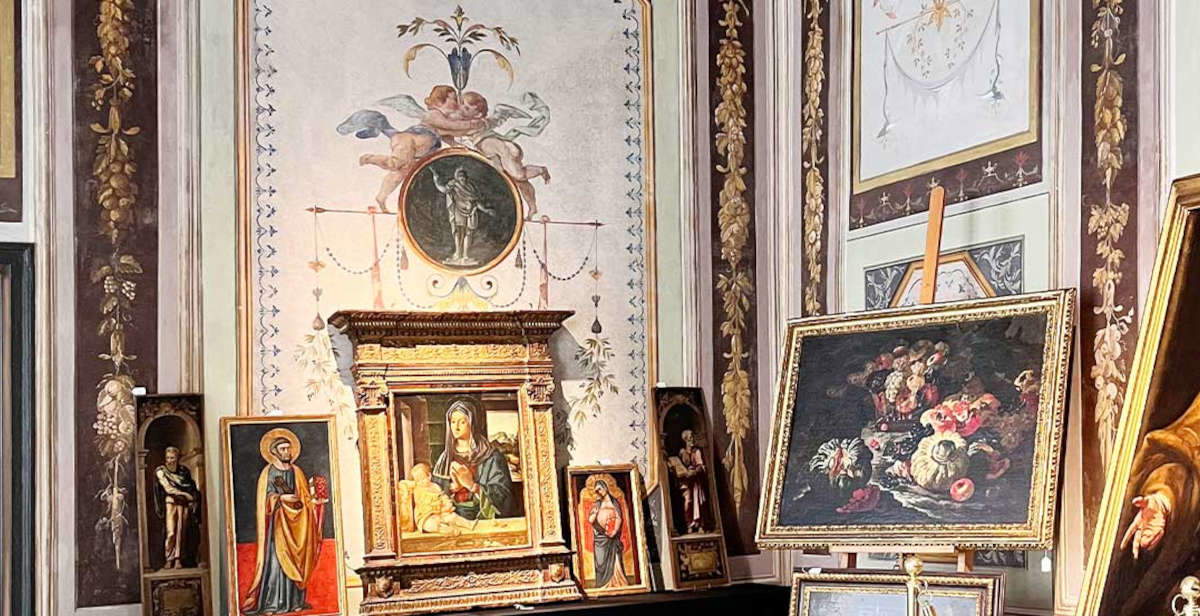Italy could be competitive in the international art market: here's how
Long times and bureaucratic uncertainties? Certainly yes: for example, the timeframe for obtaining a free circulation has lengthened, some offices devoted to export paperwork have been closed, and the parameters for defining constraints are subjective or variable, not always easy to decipher or understand. From this point of view, I do not perceive a better dialogue between the State and the sector operators, as I do not sense a real understanding of the problems faced by an antiquarian or an auction house, realities that, confronting a global market, must respond to a clientele with due seriousness and precision. Having said that, it must also be said that superintendency officials are increasingly judged in their actions, forgetting that they are art historians, trained professionals who can best evaluate the necessary actions of protection. So, the problems are glimpsed in the legislation and its directives.
Italy could be competitive in the international framework, but for the aforementioned reasons it is not in the condition to sustain the agility and seriousness of the market, and this results in an objective devaluation of the works of’art there, and it may be suggested that when the state decides on a lien, it would be appropriate for it to purchase the “asset” as it does in other countries of the Union and with equivalent figures.
It would also be appropriate to assess the importance of art assets from different points of view, for example, there are works that necessarily have to be subject to notification because of their historical importance and their close connection with a territory and its culture, but there are also works that do not rise to these parameters, but are in any case critically important and could be subject to a “passport,” a kind of traceability; in short, a more European vision could be pondered. In a nutshell, it would be necessary to be able to give collectors and operators faster times and clearer and more certain answers, keeping in mind that these are private goods and a notification or an extension of bureaucratic time deeply undermines their value.

Therefore, there is a need to review the responsibilities of protection, which must take into account all these aspects, noting that those working in the sector are not calling for a freedom of action lacking in discipline and respect for cultural heritage, but are asking to work with due serenity and to deal with a state that takes into account the efforts and commitments they support.
Everyone rejoices at the success of Italian antiquarians abroad, but no one highlights the difficulties and challenges they face.
The point then, is not fluidity, but greater attention to what is useful for protection and for those who work and undertake, keeping in mind that those who operate do so with considerable effort and significant business risks.
Otherwise, the common narrative underestimates these aspects, and, by most, the figure of the antiquarian or those who deal with antiquities is seen as a kind of azzicarbarburous, or there is a tendency to interpret their work in the exclusive light of worldliness, neglecting or unwilling to see that they are professionals with a deep cultural background and who, in order to relate to the so-called “international market,” composed of collectors, institutions and museums, have proven their seriousness and unimpeachable reliability, bringing prestige to our country by virtue of their tenacity and hard work.
In conclusion, it is clear that action should be taken, that something needs to be changed, but it is equally clear that it is not a matter of “eroding the prerogatives of the state”: the state is all of us, and this is not the rationale that should guide a new and current protection policy.
In the first place, I think credit should be given to all the actors involved, recognizing their professionalism, their value and the efforts they make, and, as a result, the state should act with due respect and care while protecting the activities and rights of all its citizens.
If for the Italian antiquaries and auction houses I have already expressed myself, one must give credit to the art historians engaged in protection for operating under increasingly difficult conditions, with scarce means, confusing directives and, often, approached or belittled by other bodies or individuals who are incompetent in the matter. The state then, must protect, but also protect private property and labor, freeing itself from those logics that lead to arbitrariness of judgment or action.
This contribution was originally published in No. 24 of our print magazine Finestre Sull’Arte on paper. Click here to subscribe.
Warning: the translation into English of the original Italian article was created using automatic tools. We undertake to review all articles, but we do not guarantee the total absence of inaccuracies in the translation due to the program. You can find the original by clicking on the ITA button. If you find any mistake,please contact us.



























